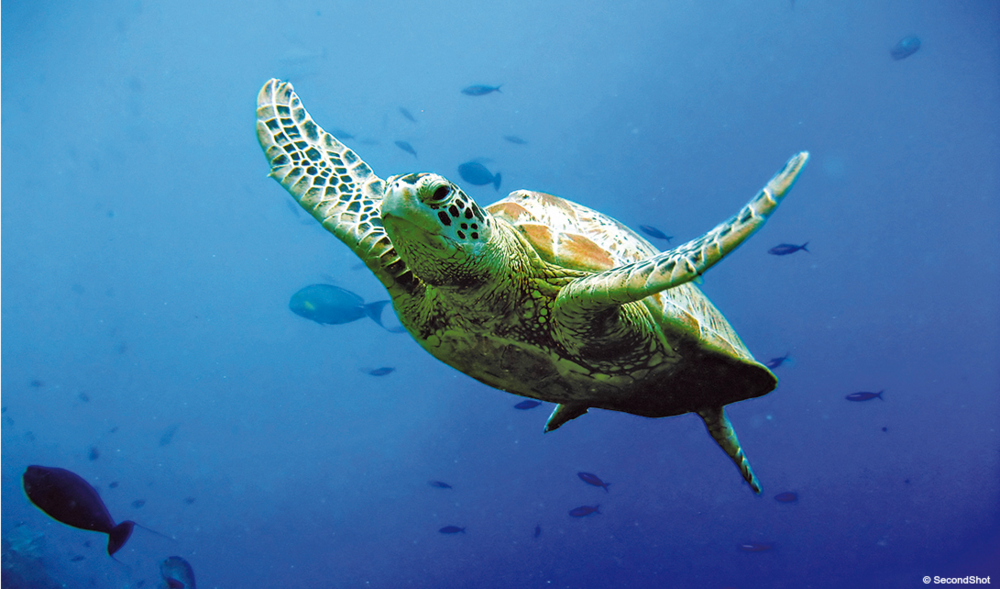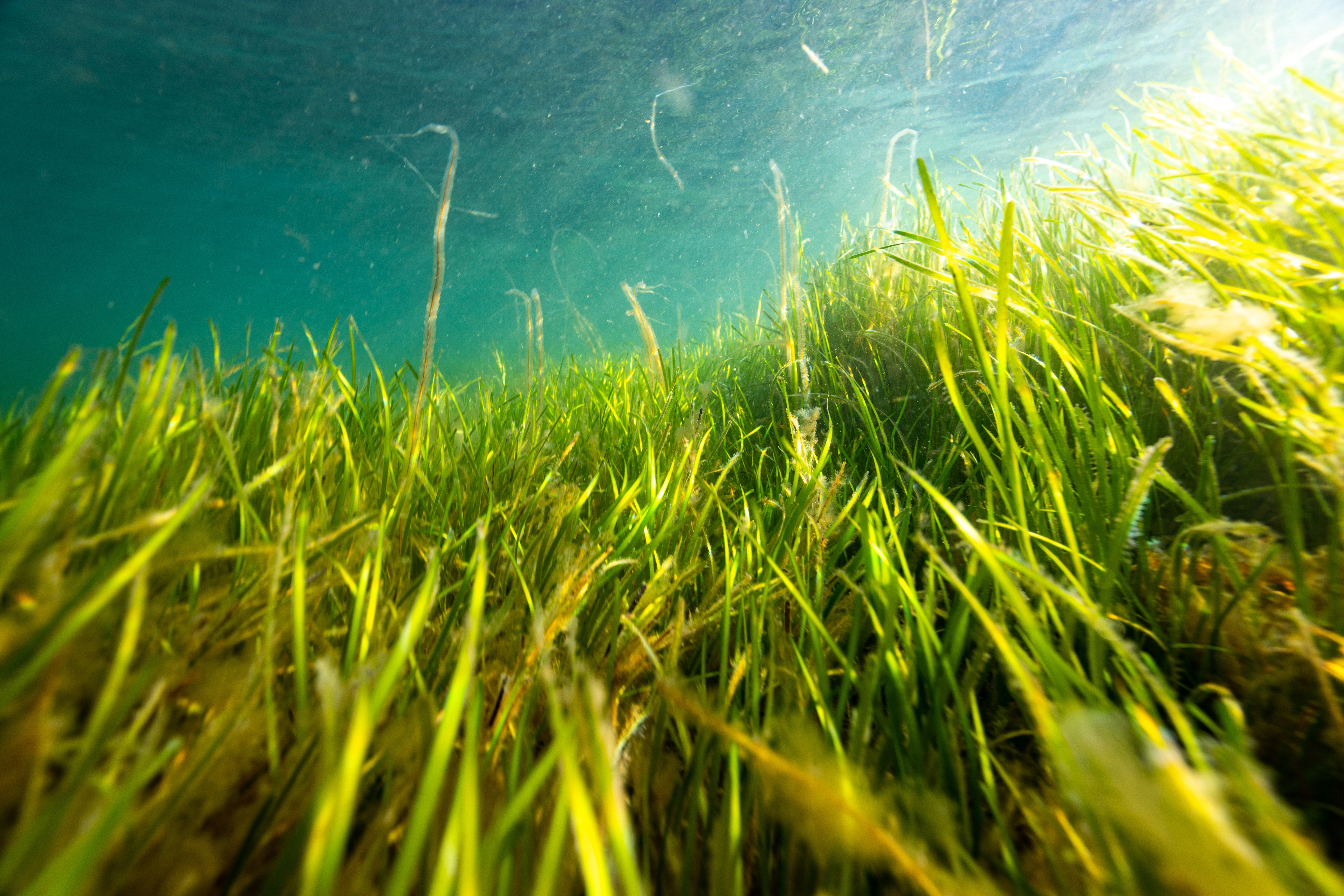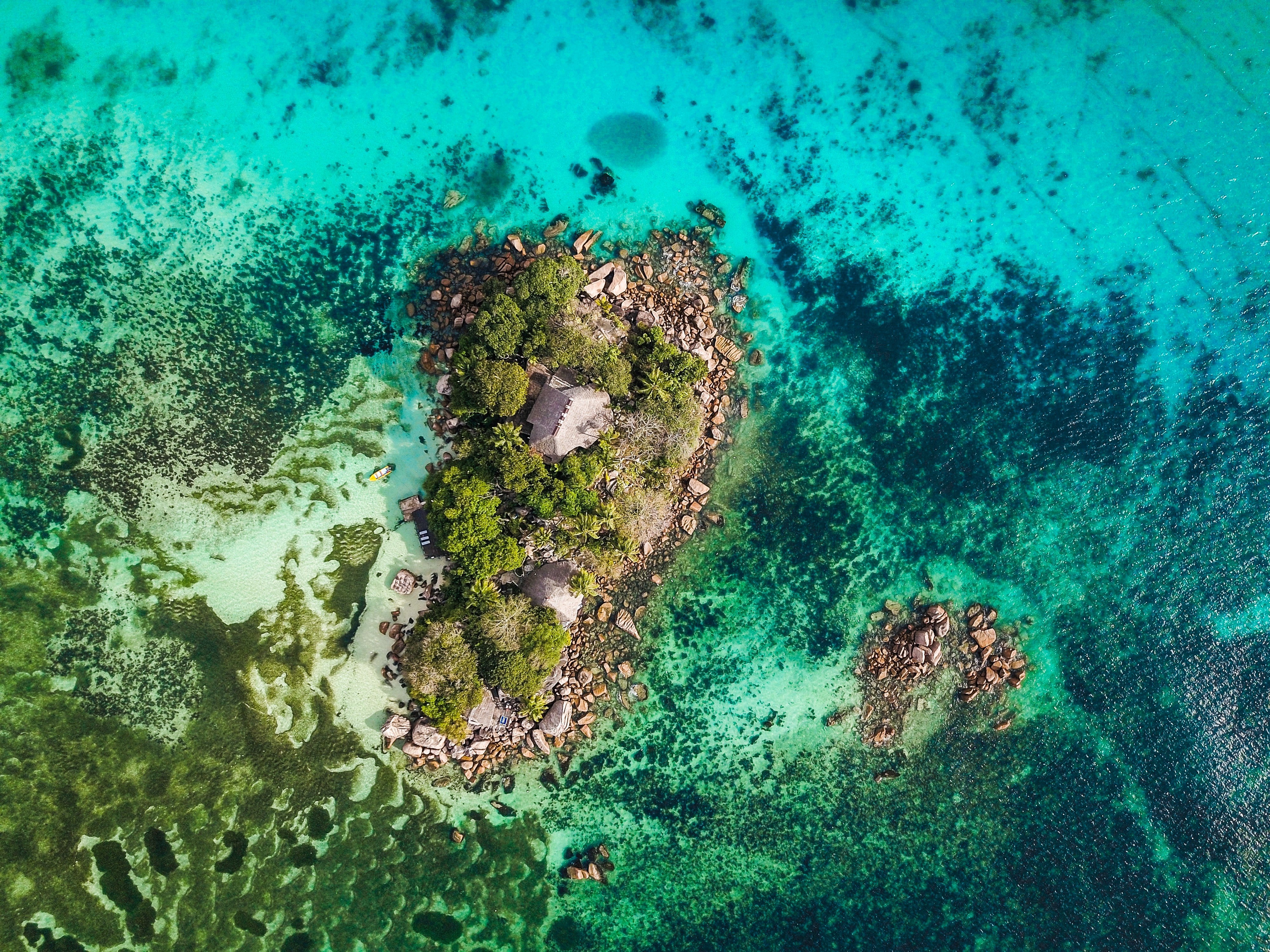
Ocean action is not optional if we are serious about ending the climate crisis
Today at COP26 ‘ocean action’ is on the agenda. To save our blue planet this really must mean concrete, measurable action, not a litany of voluntary targets, gaping loopholes, and distant deadlines, as we have come to expect.
Our ocean absorbs around a third of the CO2 we pump out, and has taken in over a nuclear bomb’s worth of heat every second for the past 150 years. A healthy ocean, teeming with life, is a vital tool in the bid to tackle global heating: more than half of biological carbon capture is stored by marine wildlife. Yet its inclusion in climate policies is paltry.
- Sign our petition calling for protection of blue carbon habitats.
‘Blue carbon’ is in every part of the marine ecosystem, from the coasts, where mangrove forests store up to four times more carbon per hectare than tropical rainforests and seagrass meadows store nearly 20 gigatonnes of carbon worldwide, where the great whales sequester millions of tonnes of carbon each year.
Our ocean is the blue beating heart of our planet, but we are putting it under pressure like never before, and ignoring the consequences.
The damage
Since industrial fishing began in the early 1950s, 90% of the world’s large ocean fish – such as sharks, cod and swordfish – have been lost. Over 90% of the planet’s fish stocks are now either fully exploited or overfished. Fishing is both contributing to and vulnerable to the climate crisis, with devastating consequences for small-scale fishers and coastal communities.
The current annual loss of seagrass is estimated to release around 299 million tonnes of carbon every year, and for coastal wetlands that figure rises to 450 million tonnes. The UK, which has world-renowned coastal and marine habitats, has lost 90% of its seagrass meadows to pollution, dredging, bottom trawling and coastal development.
The solutions
COP26 is our chance to start to repair this desperate situation, and governments should grasp this opportunity to shine on an international stage by including specific, legally binding targets to protect and restore blue carbon environments in their Nationally Determined Contribution implementation plans. They must also make sure marine environments are front and centre in the Global Stocktake, which will take place for the first time in 2023.
Commitments to the 30x30 ocean protection plan, to designate 30% of the ocean as ecologically representative protected areas by 2030, should be regarded as a first step. From there we can reach to 50x50, as well as agreeing an international moratorium on deep sea mining to protect the deep sea from irreversible, large-scale harm.
The experts
The small island states know more than most about the importance of the ocean. The overexploitation and degradation are felt first-hand here, where livelihoods depend on dwindling fish populations and bleaching coral reefs. And the existential threat of sea level rise is ever-present.
“Rather than a small island state we speak as a big ocean state,” said Seychellois Ambassador Ronny Jumeau. This destruction of ocean ecosystems, he says, is felt deeply by the islanders. “Our whole way of life, our culture, our identity, is polluted. It’s as if you are coating us with slime, with oil, with plastics. It cuts to the core of who we are.”
The truth is we should all feel just as deeply as the Seychellois people. The ocean covers over 70% of our planet, it underpins our climate system and keeps our world habitable. The ocean should not be a side event at COP26, it should be the main event. The time for action is now.
This piece was published by DIVE Magazine and is reposted here with permission.
SIGN UP FOR OUR EMAILS AND STAY UP TO DATE WITH EJF

